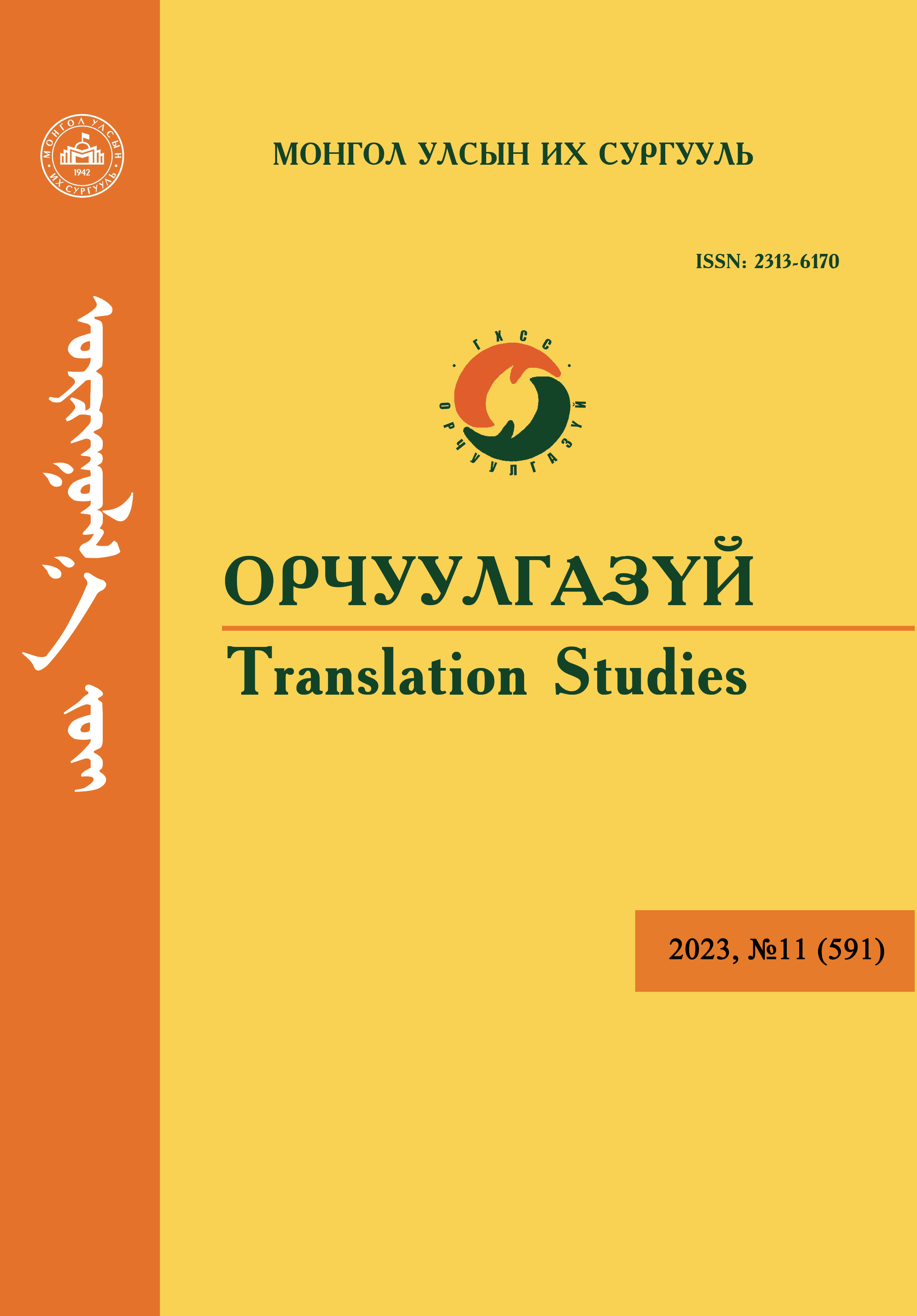ХЯТАД ХЭЛНИЙ “把 (БА) ” БҮХИЙ ӨГҮҮЛБЭРИЙГ ОРОС ХЭЛНЭЭ ОРЧУУЛАХ НЬ
(ЗЯН РУНЫ “ЧОНОН СҮЛД” РОМАНЫ ЖИШЭЭГЭЭР)
DOI:
https://doi.org/10.22353/TS20230117Keywords:
Хятад хэлний “把 (ба)” бүхий өгүүлбэр, “Чонон сүлд” роман, орос орчуулга, үгийн давтамж, хятад хэлний өгүүлбэр зүй, тийн ялгалAbstract
A feature of Chinese grammar, the sentence with “把 (ba)” is a frequently used sentence form in modern Chinese. Chinese is a language with an invariant root structure, while Russian is a complex language with many functions, so the syntactic structure of these languages is very different. In this article we will discuss how the sentence with “把 (ba)” was rendered in Ageev's Russian translation of the novel “Wolf Totem” which is a modern famous work of the Chinese writer Jiang Rong. The structure of the sentence with “把 (ba)” is quite complicated, and we first look at “把” which occurs in the novel “Wolf Totem” according to Fan Xiao's classification based on the features of the sentence with “把 (ba)” in Chinese. Sentences with “把 (ba)” were classified. According to these 9 categories, the Russian translation of those sentences was analyzed, and the method used in its translation and the structure of the Russian translation were considered.

